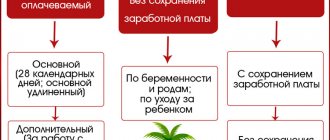Recycling concept
Modern labor legislation is aimed at resolving all possible situations that arise in the process of carrying out work activities.
One of the main issues that is clearly defined is the working time of each employed citizen. This value was not discovered by chance, since an increase in the number of hours that a citizen must devote to work can affect his physical and emotional health. The main regulatory act regulating this issue is the Labor Code of the Russian Federation dated January 30, 2001 No. 197-FZ.
As such, the current legislation does not contain a definition of overworking hours, but it is customary to use it always when it comes to overtime work.
They are usually referred to as the entire period of work of the employee, who continues to perform his duties at the initiative of the administration (Article of the Labor Code of the Russian Federation). At the same time, the optimal time for work is defined in Art. Labor Code of the Russian Federation: 40 working hours per week.
However, in the age of developing industrial technologies, some enterprises cannot comply with the above regime, due to the need for continuous work, which is justified by an inextricable technological process. There are also rules in this regard that allow such companies to use summarized time tracking based on a drawn up and approved work shift schedule with floating days off.
Article 91 of the Labor Code of the Russian Federation “The concept of working time. Normal working hours"
Article 99 of the Labor Code of the Russian Federation “Overtime work”
How is overtime paid for during a shift work schedule?
According to Art. 152 of the Labor Code of the Russian Federation, payment for processing is made in the following order:
- the first 2 hours of activity - at one and a half times the rate;
- the rest of the time - in double.
Moreover, these coefficients are minimally determined by law. The final amounts of payment for processing are established by the internal documentation of the enterprise, i.e. they can be higher.
IMPORTANT! When accounting for total hours worked, the additional payment for overtime is calculated as of the end of the reporting period. That is, if the reporting period in a company is a quarter and, based on its results, the worker has hours of overtime work: for the 1st month of the quarter - 2 hours, for the 2nd month - 1 hour and for the 3rd month - 1 hour, then all the time processing is summed up according to the rules of Art. 152 of the 4 hours of unscheduled work received in this way, 2 hours are paid at one and a half times the rate, the rest - at double.
To calculate the exact amount of additional payment for the overworked period, you need to know the specialist’s hourly tariff rate. If the employee’s salary is already calculated using tariff rates, finding out the amount of additional payment for overtime work will not be difficult. The situation is more complicated if the worker is given a monthly official salary.
There are several ways to calculate your hourly rate.
- By dividing the salary portion by the standard number of hours for 12 months. That is, with a salary of 30,000 rubles. monthly and standard working hours in 2021 at 1974 hours (with a 40-hour week) the hourly rate will be 30,000 / (1974/12) = 182.37 rubles.
- By dividing the salary by the standard hours in the desired month. At a rate of 168 hours in October 2021, the hourly rate will be 30,000 / 168 = 178.57 rubles.
- When an enterprise uses summarized accounting of the period worked, the hourly rate can be calculated by dividing the salary by the average standard working hours in the reporting time. The norm in the 3rd quarter of 2021 is 528 working hours - accordingly, the tariff rate will be equal to 30,000 / (528/3) = 170.45 rubles.
Causes
You can only be brought to work with the consent of the worker in the following situations:
- When there is an urgent need to complete any activity that the citizen himself could not complete within a certain period of time. In this case, it is possible to involve in overworking of working hours only if failure to complete such work could lead to the loss of property or create a threat to the life and health of people;
- When it is necessary to carry out temporary technical work, without completion of which a more impressive number of people may find themselves without appropriate working conditions;
- If the work is continuous and does not imply a break, and the person replacing the previous one did not show up to his workplace. In this situation, the administration must take all measures to replace the replacement;
- When there is an important task from management, the failure of which can significantly affect the work of the entire enterprise as a whole.
You can be forced to work overtime without obtaining consent for the following reasons:
- If you plan to prevent a disaster;
- If the consequences of a natural disaster, catastrophe, or industrial accident are being eliminated;
- When performing work aimed at eliminating problems in water supply, sewerage, gas, lighting and transport systems.
In all other situations not stated above, an employee can be forced to perform his duties at the end of the working day only with his written consent. If there is a trade union in the organization, it is worth taking its opinion into account in this case.
Working time standards
Working time standards, exceeding which will already be considered overtime (Article of the Labor Code of the Russian Federation): this is 40 hours per week (Article of the Labor Code of the Russian Federation). Also, the daily shift is no more than:
- four hours for minors from 14 to 15 years old during the holidays;
- five hours for students of schools or institutions of secondary vocational education during the holidays aged 15 to 16 years;
- five hours for pupils during holidays aged 16 to 18 years;
- two and a half hours for students in schools or secondary vocational education institutions aged 14 to 16 years, when combining work and study;
- four hours for students aged 16 to 18 years, when combining work and study;
- eight hours in hazardous enterprises with a work duration of 36 hours per week;
- six hours in hazardous enterprises with a work duration of 30 hours per week;
- twelve hours in hazardous enterprises with a 36-hour work week, if this is regulated by signed agreements between the parties, a collective agreement, provided that the weekly duration does not go beyond the established norms;
- six hours in hazardous enterprises with a 30-hour work week, if this is regulated by signed agreements between the parties, provided that the weekly duration does not go beyond the established standards.
Read also: Copyright protection on the Internet
For specialists with limited physical abilities, a separate work regime is established based on the issued medical report.
At the same time, this article regulates that the length of work shifts for workers in culture, cinema, circus, concert enterprises, theaters and other enterprises in the field of staging performances can be determined by labor contracts, the collective agreement of such an organization and its internal acts.
Article 94 of the Labor Code of the Russian Federation “Duration of daily work (shift)”
Calculation of overtime when working in shifts
In order to calculate the amount of additional payment for overtime during a shift change, it is first necessary to determine the number of hours worked in excess of the norm.
With the weekly accounting method, identifying hours worked in excess of the norm is quite simple. You just need to know the maximum standard for the duration of a working week for a specific employee, established by law. All hours worked above this limit will be overtime.
If the company uses cumulative accounting of work time, then in order to determine the duration of overtime it will be necessary to calculate the time worked cumulatively for the entire accounting period. This point is fundamentally important, since excessively worked hours that go beyond the norm established by law are considered overtime only at the end of the reporting period.
For example, if in a company, for employees working in shifts, time worked is calculated using the cumulative accounting method using a quarterly reporting period, with a standard 40-hour work week, the normal length of work time in the 3rd quarter of 2021 will be as follows:
- July - 168 hours;
- August - 184 hours;
- September - 176 hours;
- total - 528 hours.
Let's say an employee worked:
- in July - 160 hours;
- in August - 186 hours;
- in September - 186 hours;
- in total for the 3rd quarter - 532 hours.
Thus, the overtime duration for the 3rd quarter of 2021 for this employee is 532 − 528 = 4 hours. It is these 4 hours that should be compensated to the employee as overtime worked.
Responsibility
Every year, the Government of the Russian Federation approves a production calendar, which contains a list of working days, the number of days off, holidays, pre-holiday days, as well as days that will be considered days off in connection with the postponement of any memorable dates.
This calendar is designed primarily for companies that work 5 days a week with an eight-hour working day and two designated days off. Therefore, the employer is charged with tracking the amount of overtime worked in order to pay the worker.
The article of the Labor Code of the Russian Federation clearly defines how many hours can be overworked:
- 120 hours over one calendar year;
- If an employee stays for two days, the total duration of stay at the workplace cannot be more than 4 hours. Liability for incorrect calculation of overtime may result from non-payment.
Art. 5.27 of the Code of Administrative Offenses of the Russian Federation determines that if the administration has not paid for the work, it and the relevant persons may be held liable for the following:
- Responsible persons may be fined in the amount of 10 to 20 thousand rubles;
- If the individual entrepreneur does not keep track of time, the amount of the fine will be from 1 to 5 thousand rubles;
- If the same violations are found at the enterprise, the fine will vary from 30 to 50 thousand rubles.
On a note! In order for a dishonest employer to be held accountable, it would be more effective to file a corresponding complaint against his actions to the prosecutor’s office or labor inspectorate. But at the same time you will have to prove the existence of the fact of processing. This will require the provision of a schedule for recording time worked, which will reflect the availability of additional hours of work. If it is not possible to provide such a document, it will be quite difficult to prove the existence of processing.
Filing a collective complaint is especially effective for law enforcement agencies, so if the number of defrauded employees is more than one, you should think about filing it.
Article 5.27 of the Code of the Russian Federation on Administrative Offenses “Violation of labor legislation and other regulatory legal acts containing labor law norms”
Temporary restrictions on overtime hours
Legislatively defined restrictions on the use of workers overtime. The employer has the right to involve an employee in additional work for no more than 4 hours. Moreover, this should not happen more than 2 days in a row.
Every year the government of the country approves a production calendar, which sets standard hours for all categories of workers. The management of the enterprise must ensure that employees working shifts do not overwork more than 120 hours per year. If such a situation occurs, penalties will be imposed on the organization. According to Article 5.27 of the Administrative Code, for each violation, an official will be punished from 1,000 to 5,000 rubles, and an enterprise - from 30,000 to 50,000 rubles. It is possible to suspend the organization's activities for up to 90 days. Article 5.27. Violation of labor legislation and other regulatory legal acts containing labor law norms
Important! In case of violations by the employer, an employee who has overtime exceeded 120 hours must receive full compensation for it.
Useful information about overtime work
Payment Methods
There are several ways to pay for overtime.
But at the same time, the Labor Code of the Russian Federation fixed the maximum minimum amount of payment; the maximum amount of payments is not defined anywhere. But regulations within the enterprise can establish other coefficients, allowances and additional payments, but no lower than the amount defined in the Labor Code of the Russian Federation. If a citizen remains after the end of his shift on a weekday:
- the first few hours are calculated at one and a half times the rate;
- the following in double the amount of the bet.
Read also: Curfew for minors in 2021
If a citizen was forced to extend his working day for a period of night time, then an increased amount is paid, but not less than the amounts determined by the Government of the Russian Federation.
With a shift work schedule, it is impossible to determine 40 hours per week as a basis, since the number of hours worked per month will constantly vary, so the amount of additional payment can be determined in the following way:
- The product of the tariff rate per hour by the amount in excess of time worked;
- Calculating the cost of one hour of labor based on the salary, followed by multiplying it by the amount of time worked.
With a reduced standard of working hours (when the enterprise has determined a smaller amount of time that is supposed to be worked during the week, for example, 36 hours), the calculation procedure will be similar to the previous one, except that all time after the established standard will be overtime.
When working on weekends and holidays, the payment will be twice as much as the due rate, but do not forget that the latest amendments to the code do not consider work on weekends as overtime. This is due to the fact that it is paid double.
The amount of time worked in excess of the required amount is calculated at the end of the reporting period, and if the employee quits, it must be calculated on the day of termination of the employment relationship.
On a note! At the request of the citizen himself, he may be granted time off for a period no less than the time spent working overtime, but in parallel with this, he will be paid for the corresponding hours in a single amount.
Recycling standards according to the Labor Code
Overtime work is recognized as work that is performed at the initiative of the employer outside the normal duration of work - shift. According to stat. 99 of the Labor Code, with the exception of certain cases, the consent of an individual is required to attract overtime. And for the accuracy of calculations, it is necessary to ensure personnel records of overtime hours.
At the same time, overtime work should not exceed established limits. Whatever the reasons for excess employment, the duration of overtime work should not exceed 4 hours in 2 consecutive days or 120 hours in a year (stat. 99 Labor Code). It is not allowed to use excess labor:
- Pregnant workers.
- Minor specialists (under 18 years of age).
- Women with young children (under 3 years old) and disabled people are allowed to be recruited only with their consent, after mandatory familiarization with the right to refuse overtime work.
Note! The employer is obliged to ensure that overtime work does not exceed the maximum legal limits. Violation of labor order threatens the manager with administrative liability under Part 1 of Art. 5.27 Code of Administrative Offences.
Recycling rate per year according to the Labor Code of the Russian Federation
So, according to stat. 99 the duration of overtime work should not exceed the limits indicated above. For a year (calendar) – this is 120 hours for one employee. The legal status of the employer and the scope of the business do not matter. How is the maximum amount of overtime per year calculated? How to determine how many overtime hours can be worked per year for a specialist working 5 days a week?
Let's look at an example
Let's assume that the accountant of the company Ivanova T.I. works 8 hours daily with a 5-day schedule. The employer's administration decides to involve her in overtime work. To comply with legal requirements, overtime hours must not exceed 4 hours in 2 consecutive days.
How can you organize the labor process - the permissible duration of overtime:
- Monday and Tuesday – 2 hours each.
- Monday and Wednesday – 3 hours each.
- Tuesday and Friday – 4 hours each, etc.
What duration of overtime is not allowed:
- Monday – 2 hours, Tuesday – 3 hours.
- Tuesday and Wednesday – 3 hours each.
- Wednesday – 4 hours, Thursday – 1 hour, etc.
The days for overtime work are chosen at will, the main thing is to comply with the current statutory limits. 99 TK. At the same time, the maximum number of overtime hours per year for an accountant should not exceed 120 hours. To calculate this figure, you need to know how many overtime hours can be worked per month.
How many hours of overtime are allowed per month?
Using the example of the previous section, it was determined that the processing limit for paired days cannot be more than 4 hours. In most enterprises, employees are involved in overtime work not constantly, but on a one-time basis. After all, if we take into account the permissible overtime of 120 hours per year, the average number of hours per month is 10. This means that specialists can stay overtime for only 2-3 hours per week. It is not for nothing that labor legislation provides for such regulations - the usual length of work time must remain within normal limits so that a person can recover and have time to rest.
However, situations are different, and some employers are forced to leave staff overtime not from time to time, but regularly. In this case, it is imperative to calculate the maximum number of overtime hours per year, based on the total monthly values. Calculations are performed based on data from time sheets, form f. T-12.
Example
Let’s say, continuing the example, for accountant Ivanova T.I. Overtime work is established on Tuesdays and Fridays in the amount of 3 hours. But such processing is not required for all months, but only for the second and fourth working weeks of the reporting periods, that is, for January, April, July and October. We will calculate whether the requirement of the stat. 99 on the limitation of annual overtime employment.
Overtime hours for 2021 = 12 hours (January) + 12 hours (April) + 12 hours (July) + 12 hours (October) = 48 hours.
Accordingly, the norm of the Labor Code of the Russian Federation that overtime work should not exceed 120 hours per year is fulfilled in relation to employee Ivanova T.I. The company does not violate the law in the field of labor legislation. Salaries are calculated in accordance with Stat. 152 TK.
Conclusion - in this article we figured out that overtime work cannot exceed 120 hours per year. When calculating, it is necessary to take into account the number of working days in a month and the limit on maximum processing in two days - 4 hours. Time is recorded in time sheets for each employee separately.
Who should not recycle
In addition to allowing an increase in the standard of average working hours, the Labor Code of the Russian Federation also contains a list of persons who are prohibited from being touched on these issues:
- Women who are expecting the birth of a baby;
- Workers, until they reach adulthood;
- Persons with limited physical abilities;
- Women who have children under three years of age. They cannot be touched without the appropriate written consent and provided that this is not prohibited by a medical opinion.
In addition to consenting to additional work, the named categories of workers must also be provided with a document informing them that they have the right to refuse.
Legal restrictions on recycling
When organizing overtime work for team members working on a shift schedule, you need to take into account some legal requirements and restrictions:
- The duration of overtime should not be more than 4 hours for one employee for 2 consecutive working days, in total for a year - more than 120 hours (clause 6 of Article 99 of the Labor Code of the Russian Federation).
- Cannot work overtime:
- pregnant employees (clause 5 of article 99 Labor Code F);
- minor workers (clause 5 of article 99 of the Labor Code of the Russian Federation);
- workers combining work and study on the basis of a student agreement (clause 3 of article 203 of the Labor Code of the Russian Federation).
- In a special order (clause 5 of Article 99 of the Labor Code of the Russian Federation), with a warning about the possibility of refusing overtime and obtaining written consent, the following are involved in overtime work in the absence of medical contraindications:
- employees raising a child under 3 years of age;
- disabled people.
- Working for 2 shifts in a row is prohibited (clause 5 of Article 103 of the Labor Code of the Russian Federation).
Thus, overtime during a shift work schedule requires not only compliance with the rules on compensation for overtime work, but also compliance with other legal requirements relating to work outside the established time standards.
Sequence of processing processing
The algorithm for processing working time processing is as follows:
- Providing the employee with a notice in which he will be informed of the reasons for the additional work, time, and duties that will need to be performed;
- Drawing up an appropriate notice, according to which the employee will be instructed that he has the right to refuse to be hired for additional work;
- Obtaining the appropriate signature of the employee on the above documents;
- Issuance of the relevant management order;
- Obtaining the employee’s signature on the order;
- Entering information about additional time worked into the time sheet by entering o in the appropriate columns with a number indicating the time;
- Transferring information to the accounting department for final settlement with the employee.
Important! In all situations where the need for additional work was initiated by the administration, it must be paid for.
Current legislation does not contain a single reason why an employer has the right to refuse payment. But if an employee goes to work of his own free will or stays late at the end of the working day, in this case the administration has the right to refuse his request for additional payment, since this fact may indicate the lack of qualifications of such an employee or insufficient personnel of the enterprise.
Read also: Law on social services for the population
The issue of accounting for overworking hours rests entirely with the employer, since in accordance with the law, working time standards are clearly defined. Exceeding these limits will be considered overtime and must be paid accordingly.
Processing under the Labor Code
Overtime hours are work performed by an employee (Article 99 of the Labor Code of the Russian Federation):
- firstly, at the initiative of the employer;
- secondly, beyond the established duration of daily work (shift) for the employee, and in the case of cumulative accounting of working time - in excess of the normal number of working hours for the accounting period.
As you can see, in order to recognize overtime work, both conditions must be met. For example, if an employee performs some work at the end of his working day on his own initiative, then such work is not overtime and should not be paid as overtime (Letter of the Ministry of Labor dated 03/05/2018 N 14-2/B-149). In addition, for such work the employer is not obliged to provide the employee with additional days of rest (Letter of Rostrud dated March 18, 2008 N 658-6-0).
Let us note that involvement in overtime work should not be systematic (Letter of Rostrud dated 06/07/2008 N 1316-6-1). That is, the employer must initially plan the work of employees so as not to include overtime in the work schedule.








